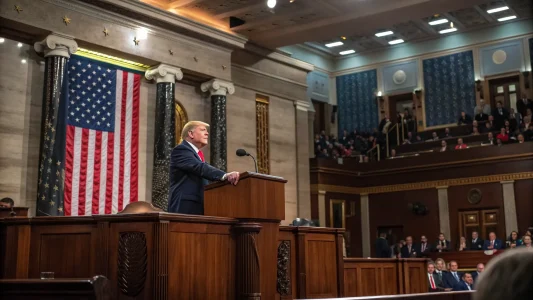Recently, President Donald Trump imposed a 25% tariff on all steel and aluminum imports into the US. Trump made it very clear that there will be no exceptions, if, ands, or buts. Trump has talked about this tariff for a while, which raised some eyebrows, since the US gets most of its steel from Brazil, Canada, and Mexico. The tariffs are, however, mostly directed at China.
25% Tariff on Steel and Aluminum
After signing the executive order, Trump said “This is a big deal – making America rich again.” While Trump is focusing on bringing wealth to America, the US doesn’t import much steel from China. Chinese steel does make its way to America frequently, typically when it’s purchased by foreign countries and reshipped to the US. A Trump administration official reports that the tariff is designed to get rid of these loopholes.
This tariff will, of course, increase the price of steel and aluminum. The US consumes millions and millions of tons of both metals every year in order to manufacture cars, appliances, skyscrapers, just to make a few. Aluminum is used to create the cans of food and drinks, jets, and key parts of infrastructure for cities such as electrical lines. The large tariff on these metals would mean that everything from food to travel more expensive for the average American.
In his previous term, Trump put a 25% tariff on steel and 10% on aluminum. It did cut imports and increase domestic production, but just for a moment. Many customers seeking steel and aluminum still imported steel and aluminum since it was still cheaper.
Will America Benefit from the Tariff?
James Campbell, analyst at consulting company CRU, said “At the start, this could damage demand… In the longer term, we can see investment coming through.” It’s no surprise that the American tariffs will benefit, well, Americans.
The American Iron and Steel Institute was happy about the tariff as well. The organization said the tariff could help address “foreign unfair trade practices and currency manipulation, ensuring full enforcement of our existing trade agreements and leveling the playing field by strengthening our antidumping and countervailing duty laws, including addressing the growing problem of transnational subsidies.”
While experts believe the tariff will help Americans in the long run, it could harm the US’s already diminishing relationship with China. In Trump’s previous term tariffs were used as a negotiation tool and tactic with China. This term, however, Trump seems to see china as a competitor for global economic potential, and is firm in making sure the US wins that battle.
What do you think of the tariff? Will the price increases be small or significant? Will the economic gain justify the damage this does to the US and China’s relationship? Let us know your thoughts in the comments.
Featured Image Credit: Anamul Rezwan; Pexels: Thank You!















